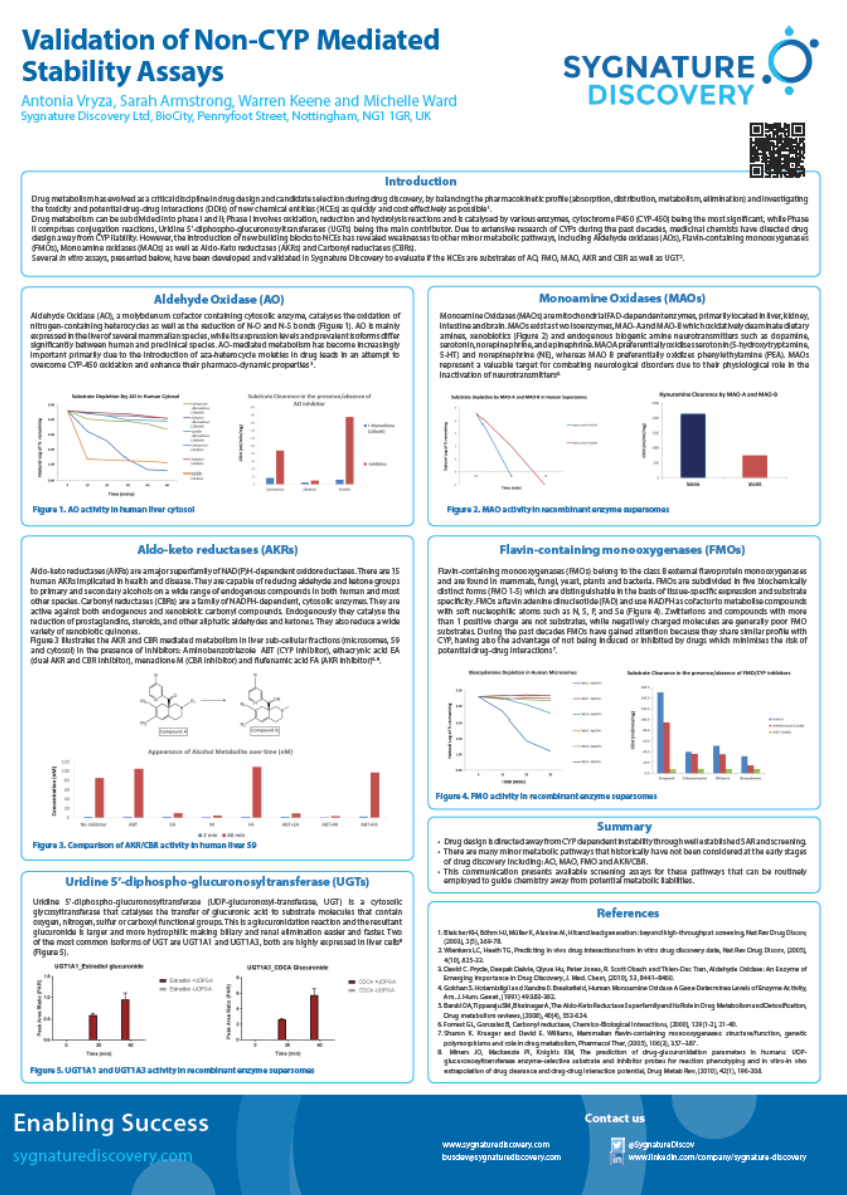Validation of Non-CYP Mediated Stability Assays
Abstract
Drug metabolism plays a pivotal role in drug design and candidate selection during drug discovery. It involves balancing the pharmacokinetic profile, encompassing absorption, distribution, metabolism, and elimination, while also investigating the toxicity and potential drug-drug interactions (DDIs) of new chemical entities (NCEs). This process is crucial for ensuring the effectiveness and safety of medications.
The process of drug metabolism can be categorized into two phases: phase I and phase II. Phase I entails oxidation, reduction, and hydrolysis reactions, primarily catalysed by enzymes like cytochrome P450 (CYP-450), which holds significant importance in this phase. In contrast, phase II comprises conjugation reactions, with Uridine 5’-diphospho-glucuronosyltransferases (UGTs) being the main contributors to this phase.
Extensive research on CYPs over the past decades has guided medicinal chemists to steer drug design away from CYP liability. However, the introduction of new building blocks to NCEs has exposed potential vulnerabilities to other minor metabolic pathways, including Aldehyde oxidases (AOs), Flavin-containing monooxygenases (FMOs), Monoamine oxidases (MAOs), Aldo-Keto reductases (AKRs), and Carbonyl reductases (CBRs).
To efficiently and cost-effectively assess the substrates of various metabolic pathways, several in vitro assays have been developed and validated by Sygnature Discovery. These assays help to determine if NCEs are substrates of AO, FMO, MAO, AKR, CBR, and UGT.
By optimizing drug metabolism and understanding these metabolic pathways, pharmaceutical researchers can improve drug design and selection, ultimately leading to safer and more effective medications.

